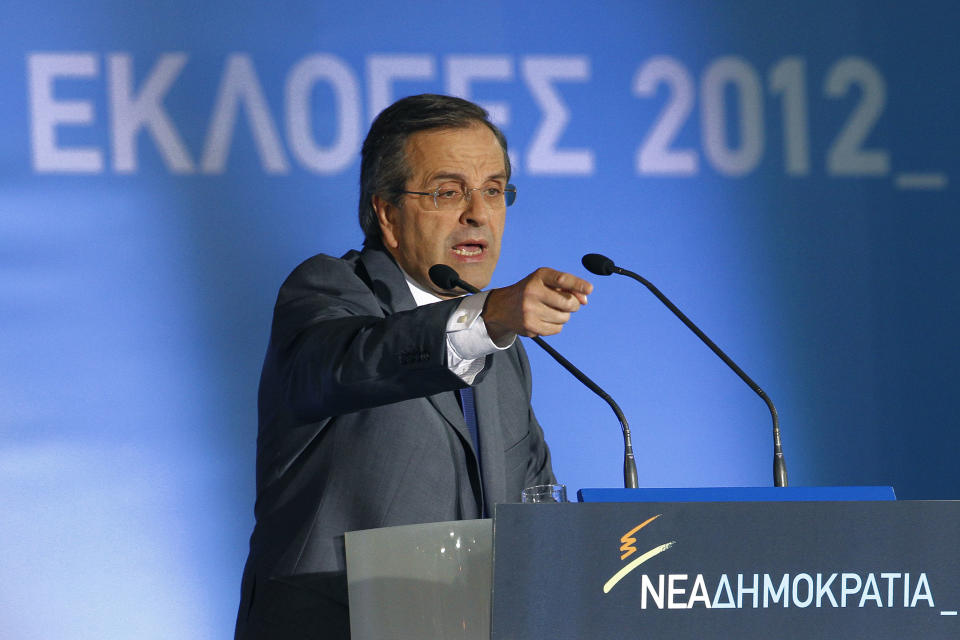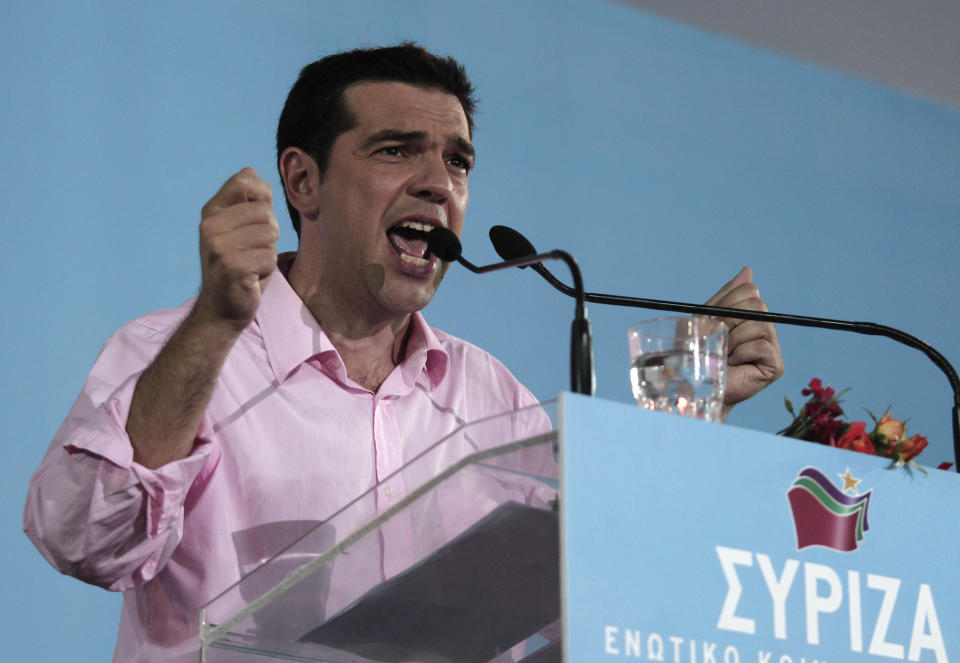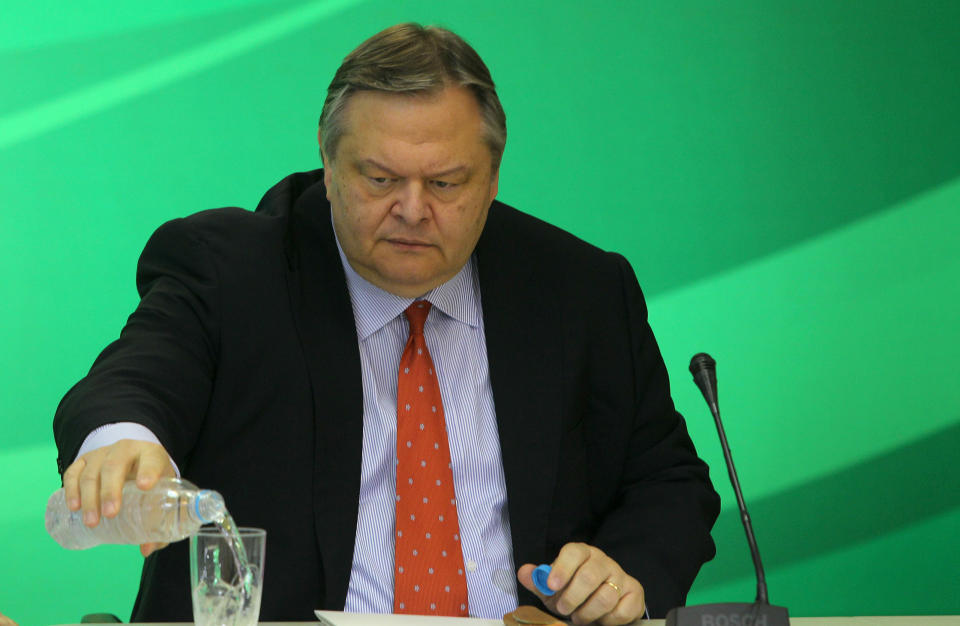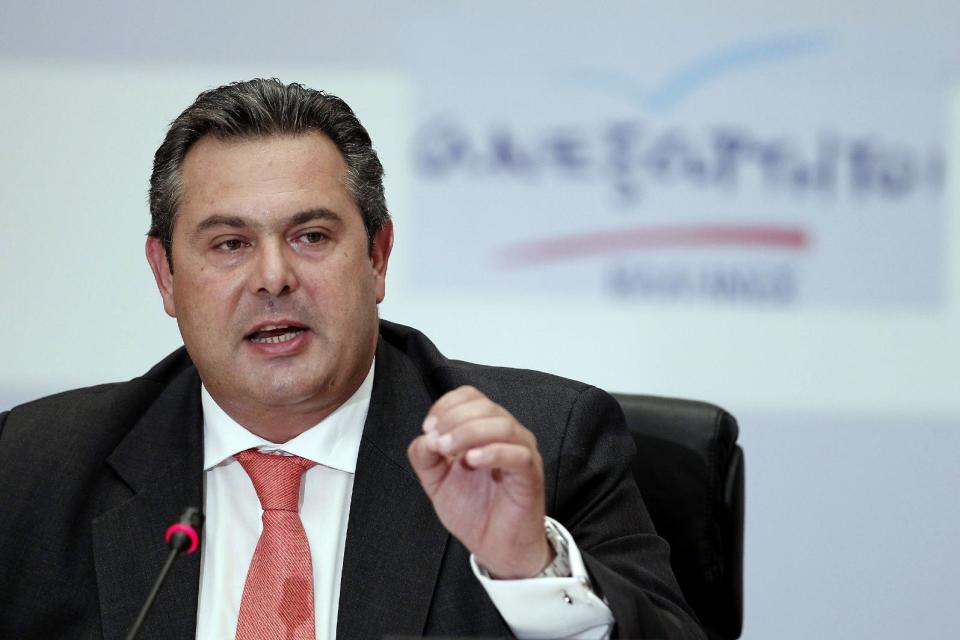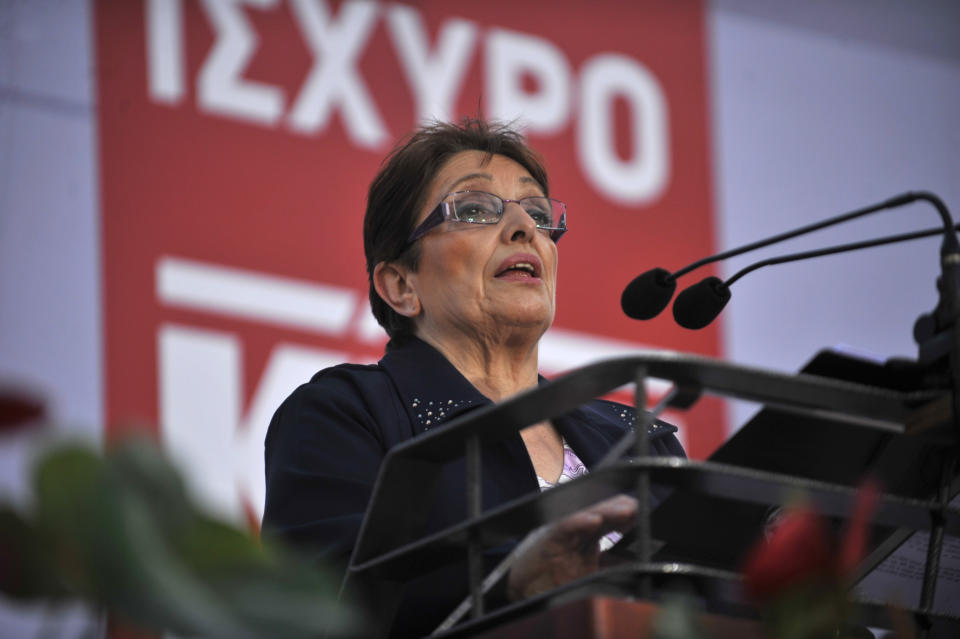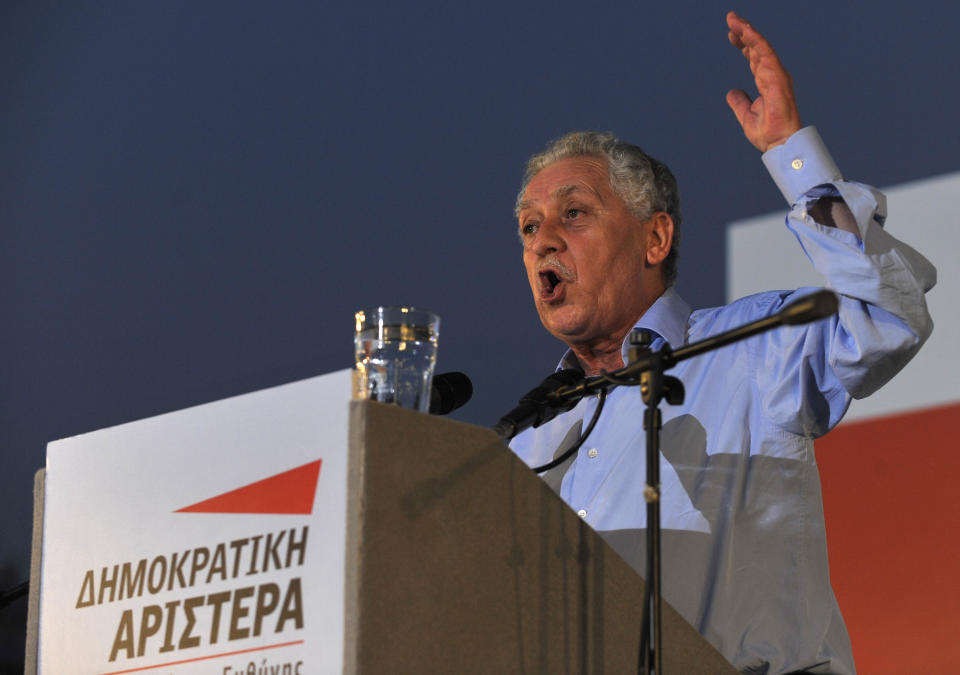A look at the main Greek party leaders
ATHENS, Greece (AP) — Opinion polls indicate seven parties will likely enter Greece's Parliament in Sunday's election. Here are sketches of the main candidates:
— Antonis Samaras, New Democracy
The U.S.-educated economist, whose party won an inconclusive victory on May 6, presents Sunday's vote as a stark choice between staying in the euro and reverting to the country's old drachma currency, which he claims will happen if his main left-wing opponents win. Opinion polls show Samaras' conservative party neck and neck with the Syriza radical left coalition. New Democracy won just under 19 percent last month, but without enough seats in Parliament to govern alone, and was unable to throw together a coalition. Samaras, 61, broadly upholds Greece's bailout commitments but wants them diluted through a two-year extension, until 2016. He has pledged to cut tax rates and boost the income of low-earning pensioners, large families, farmers, police and fighter pilots. He wants to "retake" Greek cities from illegal migrants and scrap laws granting citizenship to second-generation immigrants. A rapid-rising conservative star in the late 1980s, Samaras briefly served as finance minister and as foreign minister when Greece's name dispute with Macedonia broke out in 1991. Following a decade in the political wilderness, Samaras was readmitted to New Democracy and became its leader after its dismal showing in the 2009 election.
— Alexis Tsipras, Syriza Radical Left Coalition
At 37, the civil engineer and former student activist is Greece's youngest party head. Riding a wave of anger at the country's harsh austerity program, Tsipras led Syriza to an unprecedented second place in last month's polls with 16.8 percent of the vote. A mainstay of the anti-austerity movement, Tsipras has alarmed many in Greece and abroad by saying he wants to scrap Greece's bailout deals, nationalize banks, restore drastically reduced pensions and salaries, and cancel plans to sack 150,000 civil servants. Nevertheless, he backs Greece's cherished position in the European Union and the eurozone, and maintains that the country can stay within both groups even if it reneges on its austerity commitments. Syriza is a grouping of politicians from 12 disparate entities, and some have suggested that they would not be averse to Greece adopting the drachma. Under Tsipras, the party alienated many Greeks by backing protesters during extensive riots in 2008 that followed the fatal police shooting of an Athens teenager.
— Evangelos Venizelos, PASOK
The 55-year-old professor of constitutional law served for nine months as the debt-crippled nation's finance minister, successfully negotiating a second international bailout and the biggest debt relief deal in history. PASOK paid heavily for the crippling austerity program that allowed Greece's two bailouts but was not accompanied by convincing structural reforms. The party that won a landslide victory in 2009 received a meager 13.2 percent of the vote on May 6. As Socialist leader, Venizelos has pledged to shield Greeks from new across-the-board income cuts, while respecting the country's bailout commitments. He is seeking a three-year deadline extension in Greece's austerity program, and has promised to overhaul the country's inefficient tax system.
— Panos Kammenos, Independent Greeks
The 47-year-old economist formed this nationalist party with other lawmakers ejected from New Democracy. His speeches are peppered with rightist rhetoric and conspiracy theories, accusing "Masonic lodges" of trying to "obliterate" Greece and castigating pro-bailout politicians as traitors. The party has proposed building a full-scale recreation of ancient Olympia, birthplace of the ancient games, next to the archaeological site and reviving the ancient Olympics — nude wrestling and chariot races included — but only for Greeks. While rejecting Greece's bailout agreements, Kammenos' party says it is pro-European. It came fourth on May 6, with 10.6 percent.
— Aleka Papariga, Greek Communist Party
The 67-year-old head of the hardline Communist party has ruled out cooperation with any other party, wants Greece to leave the EU and eurozone and unilaterally write off all its debts. Formed in 1918, the party is Greece's oldest. Papariga became the first woman to lead a Greek party in 1991. The party won 8.5 percent of the vote on May 6.
— Nikolaos Michaloliakos — Golden Dawn
Extreme rightist Golden Dawn is the one party nobody is likely to court in coalition talks: its favored "Blood and Honor" chant is the Hitler Youth's motto, its emblems eerily resemble Nazi insignia and its officials have praised Adolf Hitler. But the group led by Nikolaos Michaloliakos, 55, rejects the neo-Nazi label — a party official has sued the Mayor of Thessaloniki over that — stressing its nationalist credentials. The party stormed into Parliament for the first time last month amid a wave of anti-immigrant sentiment, gaining 7 percent of the vote and 21 of the 300 seats. Golden Dawn supporters have been repeatedly accused of violent attacks on immigrants. The party gained additional notoriety this month when its official spokesman repeatedly slapped a female Communist official twice his age during a live TV debate, hid for two days to escape arrest and then sued his victim for alleged verbal provocation. Golden Dawn is anti-bailout. It wants to "liberate and incorporate with the motherland" parts of neighboring Albania and limit voting and land ownership rights to "those who are Greek by birth and conscience."
— Fotis Kouvelis — Democratic Left
He heads the mildest of the three main left-wing parties running for election and is seen as a potential kingmaker in any coalition government. After the May 6 election, Kouvelis insisted that he would not join in any coalition that excluded Syriza — his former party — despite being reportedly offered the position of prime minister. He has since said he will do whatever is needed to help form a government. Kouvelis served as justice minister for three months in 1989. The 63-year-old lawyer split from Syriza in 2010 to form a more clearly pro-European party that unhesitatingly backs Greece's EU and eurozone membership. The party received 6.1 percent of the vote last month.
